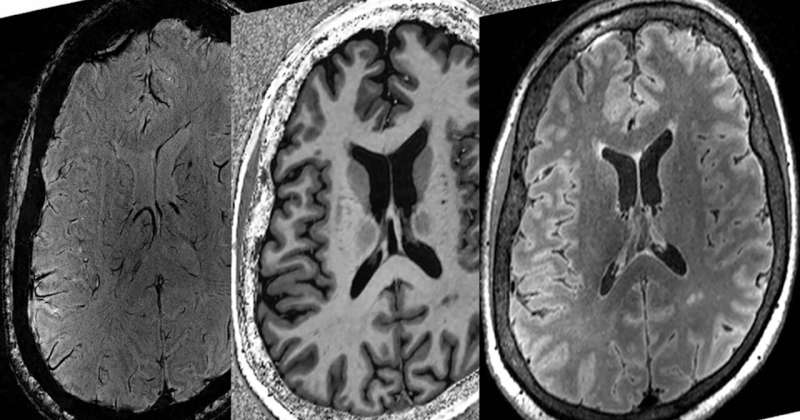This article has been reviewed according to Science X's editorial process and policies. Editors have highlighted the following attributes while ensuring the content's credibility:
fact-checked
peer-reviewed publication
trusted source
proofread
Researchers use AI to predict recovery after serious brain injury

Two graduate students from Western University have developed a method for predicting which intensive care unit (ICU) patients will survive a severe brain injury.
Matthew Kolisnyk and Karnig Kazazian combined functional magnetic resonance imaging (fMRI) with state-of-the art machine learning techniques to tackle one of the most complex issues in critical care.
Whether it is the result of a stroke, cardiac arrest or traumatic brain injury, lives can forever be changed by a serious brain injury. When patients are admitted to the ICU, families are faced with tremendous uncertainty. Will my loved one recover? Are they aware of what is going on? Will they ever be the same again? Despite these essential questions, health-care professionals are equally uncertain about the potential of a good recovery.
The graduate students are Ph.D. candidates at Schulich School of Medicine & Dentistry in the lab of neuroscientist Adrian Owen.
"For years we've lacked the tools and techniques to know who is going to survive a serious brain injury," said Owen.
An interdisciplinary team of researchers from Western, in collaboration with neurologists at London Health Sciences Centre and Lawson Health Research Institute sought to find a solution to this problem. They were led by Loretta Norton, a psychology professor at King's University College at Western, who was one of the first researchers in the world to measure brain activity in the ICU.
The team measured brain activity in 25 patients at one of London's two ICUs in the first few days after a serious brain injury and tested whether it could predict who would survive and who would not.
"We previously found that information about the potential for recovery in these patients was captured in the way different brain regions communicate with each other," said Norton. "Intact communication between brain regions is an important factor for regaining consciousness."
The breakthrough occurred when the team realized they could combine this imaging technique with an application of AI known as machine learning. They found they could predict patients who would recover with an accuracy of 80 percent, which is higher than the current standard of care.
"Modern artificial intelligence has shown incredible predictive capabilities. Combining this with our existing imaging techniques was enough to better predict who will recover from their injuries," said Kolisnyk.
While encouraging, the researchers say the prediction was not perfect and needs further research and testing.
"Given that these models learn best when they have lots of data, we hope our findings will lead to further collaborations with ICUs across Canada," said Kazazian.
The study was published in Journal of Neurology.
More information: Matthew Kolisnyk et al, Predicting neurologic recovery after severe acute brain injury using resting-state networks, Journal of Neurology (2023). DOI: 10.1007/s00415-023-11941-6




















